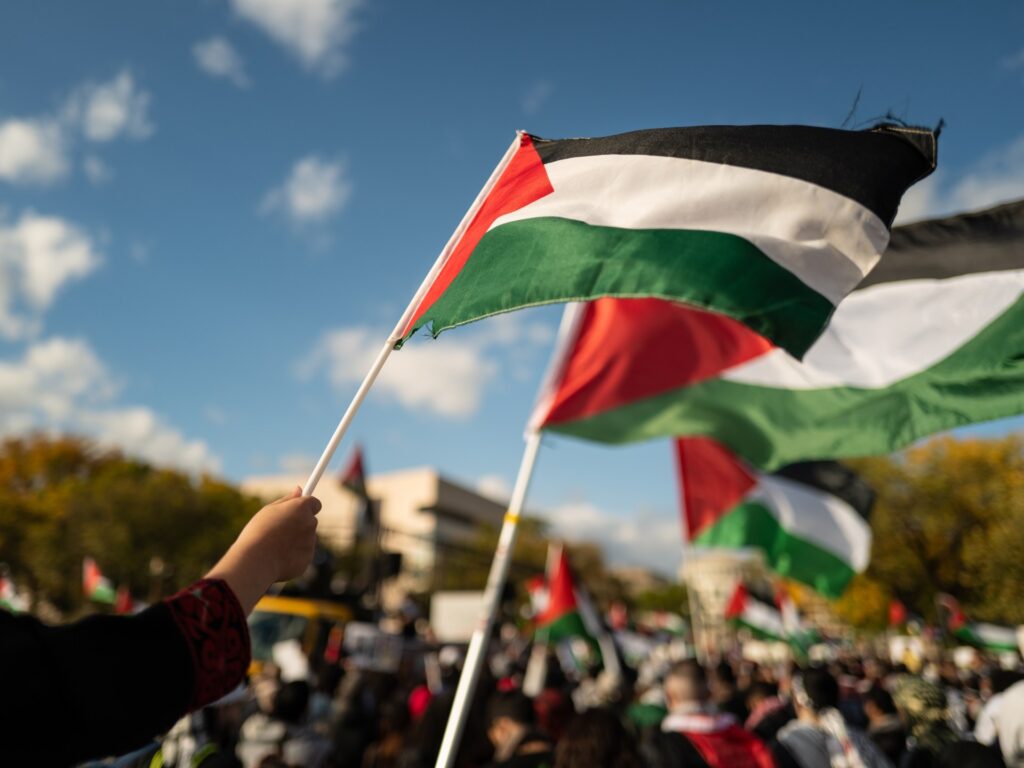Tel Aviv Tribune Net correspondents
London- With Norway, Spain and Ireland announcing – yesterday, Wednesday – their official recognition of the State of Palestine, interest is increasing in countries that may follow suit, despite the clear Israeli anger at this step. Ireland’s recognition will have an internal and external impact.
On the internal level, it will give the institutions in solidarity with the Palestinian right a free hand to move further, while externally, what is happening in this republic casts a shadow over its neighbor, Northern Ireland, which belongs to the United Kingdom, and on Scotland, which will necessarily lead to the opening of a discussion in London as well.
It is expected that Ireland’s recognition of the State of Palestine will bring the debate back strongly to the British Parliament, especially after Foreign Minister David Cameron announced – weeks ago – that his country is seriously considering this, with increasing pressure from the Liberal Democratic Party, which was the first British party to submit a project to recognize the State of Palestine to Parliament.
Serious discussion
Hugh Lavant, an expert in international relations at the European Institute of Foreign Relations, believes that Ireland’s recent decision will open a serious discussion about recognizing Palestine in Britain, especially since “the Foreign Minister opened the door to the matter when he said that his country may propose recognition when the reasons for doing so are mature.”
In his conversation with Tel Aviv Tribune Net, Lavant warned that Irish recognition is expected to not be symbolic, given Ireland’s history.
He said that this recognition will push matters to talk about a two-state solution based on the law, with clear requirements about the borders, without which, talk about the State of Palestine will remain without any political or legal weight. “It could take us back to former US President Donald Trump’s vision of a Palestinian state scattered across the regions.” Gaza and the West Bank.
Lavant confirms that Britain will have more pressure, especially since European countries such as France and Belgium are likely to recognize the State of Palestine during the next stage.
The political context in Britain is marked by the imminent change in the ruling party with the holding of general elections at the beginning of next July, which the Labor Party is expected to win, and which is closer to the issue of recognizing the State of Palestine than the Conservative Party.
On the other hand, Lavant stressed the importance of Britain’s current imposition of sanctions on figures who support settlements, support of the International Criminal Court’s investigation into settlements, and the possibility of imposing sanctions on companies that deal with settlements.
In his opinion, all of this will prevent the de facto policy that Israel wants to impose, but the step of recognizing the State of Palestine remains very important and necessary.
Historical background
For her part, Scottish politician Yvonne Ridley praised the recognition decision, expressing her hope that other European countries would follow the example of the three countries that announced their recognition of the State of Palestine.
Regarding the Irish position on the Palestinian issue, Ridley confirmed – in her speech to Tel Aviv Tribune Net – that the matter has a well-established historical background that stems from what is shared with the Palestinian people, and the occupation that the Irish people have suffered and continue to suffer, who still aspire to independence and unity, “which is what Scotland shares with them.”
The leader of the Scottish “ALBA” party – which calls for secession from the United Kingdom – added that the historical background is important in understanding the Irish position “because they are a people who suffered from the confiscation of their right to self-determination and independence, which makes them the most understanding and in solidarity with the Palestinian people who are fighting a daily battle for existence on their land.” In order to survive and preserve it.
She expressed her hope that the Scottish government would take the same step, ruling that out because of what she said was the rejection paper that would be published by the central government in London, which supports – in an unprecedented manner – the Israeli occupation and supports the crimes it is committing in the Gaza Strip.
agree
Despite the obstacle of the British “veto” on any Scottish decision, Ridley stressed that this does not change the fact that the political elite and the popular mood in Scotland support the Palestinian cause and support the recognition of the Palestinian state, because in the political and popular memory in Scotland they also have “their own catastrophe” and suffer from suffering. The displacement and confiscation of land that Palestinians suffer.
The Scottish politician said that if her country gains independence in the future, a Palestinian state will be recognized directly and automatically, because there is a political consensus on this matter, and demands from members of Parliament to British Prime Minister Rishi Sunak for this, similar to some European countries.
Last November, the resigned head of the Scottish government, Hamza Yusuf, sent a request to the British authorities in this context, but the London government has a strong network of interests with Israel, and there is an influential Israeli lobby that defends Tel Aviv’s interests in Britain.


